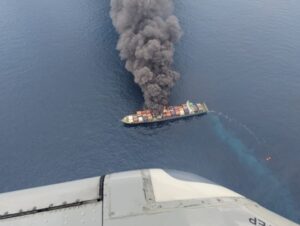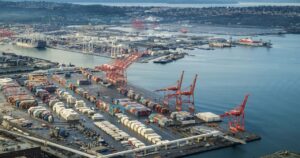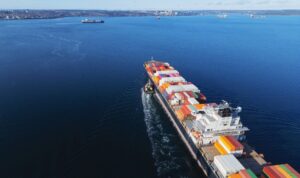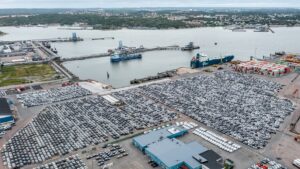Krishnapatnam Port, India’s largest deepwater port on the east coast of India, has installed its ‘Rapiscan Eagle P60' (Eagle P60) — a drive through x-ray container scanner and radiation portal monitors.
Besides increasing security and safety of the port, the container scanner will improve the terminal’s overall performance whilst reducing the service time.
The drive through container scanner will enable the port to increase the volume of handling import containers by an estimated 5,000 TEUs per month and encourage the movement of transshipment cargo.
It is also set to increase the frequency and connectivity of vessels by reducing the dwell time, transaction costs and ensuring timely delivery.
The new container scanner will give a boost to the volume of containers handled as it will increase the speed of inspection, reduce the manual work at the terminal and enhance the efficiency of the entire logistic chain.
Krishnapatnam Port is the first seaport in India to procure and install the drive through container scanner at its port.
Read the latest Port Technology technical paper from Wolfgang Lehmacher of the World Economic Forum on how ports are smart links in the supply chain
The move will improve the problem of Indian exporters experiencing losses when non-scanned containers are rejected and help in the direct port delivery of import containers, which will tackle congestion at the container terminal and the container freight station.
After a rise of 88% in its container handling capacity and 25% in total cargo handling for 2018, the port plans to become a key transshipment hub on the east coast of India.
Commenting on the development, Mr. Anil Yendluri, CEO Krishnapatnam Port Container, said: “Krishnapatnam has been at the forefront of embracing technological advancements and integrating the most modern port solutions.
“The installation of the container scanner is a step forward in our ongoing commitment to offer the best in class and most competitive service offerings to our clients.
“We will continue to invest in cutting-edge technological innovations that not only bring immense benefits to the port operations and the trade community but also play a crucial role in contributing to the country’s economy.”
Read more:
-
The Port of Rotterdam Authority will be piloting a new container identification system that will scan incoming cargo on trucks for registration details
-
Maqta Gateway, an Abu Dhabi Ports subsidiary, has claimed that it is the first Abu Dhabi entity to develop and launch its own blockchain technology for imports and exports








